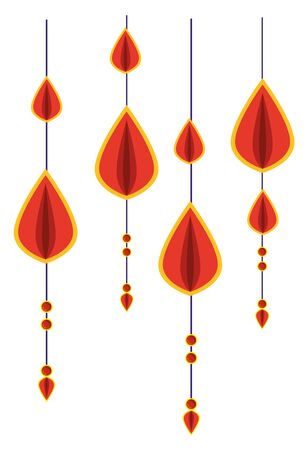Understanding Feng Shui and Relationship Harmony
Feng Shui, an ancient Chinese art of arranging spaces, has long been associated with creating balance and harmony within the home. In the British context, adapting Feng Shui principles can offer fresh perspectives on how our living environments influence personal relationships. Rather than requiring a complete overhaul or expensive purchases, practical Feng Shui focuses on mindful placement and selection of décor to foster positive energy. The layout of rooms, choice of colours, and use of symbolic items can subtly encourage communication, trust, and warmth between partners or family members. By understanding the basics of Feng Shui and tailoring them to suit British homes—whether you reside in a Victorian terrace, a semi-detached house, or a modern flat—you can create an inviting atmosphere that supports relationship harmony without breaking the bank.
Essential Feng Shui Symbols for Love and Connection
Feng Shui’s core philosophy rests on balance, flow, and the strategic placement of objects to encourage positive energy—particularly in relationships. When adapting this ancient wisdom to a modern UK household, it’s useful to understand both the traditional meanings and how to integrate them without overwhelming your space or your budget. Here’s a breakdown of classic symbols associated with relationship harmony, plus practical ideas for subtle yet meaningful inclusion.
Key Symbols and Their Contemporary Adaptations
| Traditional Symbol | Symbolic Meaning | Practical UK Home Integration |
|---|---|---|
| Mandarin Ducks | Lifelong partnership, fidelity | A pair of duck ornaments or prints on bedside tables; choose ceramics from local markets for affordability and a touch of British craftsmanship. |
| Double Happiness Character (囍) | Marital bliss, joyful unions | Opt for minimalist wall art featuring the character in neutral tones; or select embroidered cushions as a subtle nod to tradition. |
| Peony Flowers | Romance, prosperity in love | Fresh or faux peonies in vases; alternatively, incorporate peony patterns into curtains or bedding sourced from British home stores. |
| Rose Quartz Crystals | Emotional healing, love attraction | Small tumbled stones placed in the bedroom; consider locally-sourced crystals for a sustainable touch. |
| Knot Motif (Mystic Knot) | Eternal connection, unbroken bonds | Knot-patterned throws or tie-backs for curtains; handmade options from UK artisans offer both meaning and uniqueness. |
Cultural Sensitivity and Modern Taste
The key to introducing these symbols is subtlety. Rather than turning your living room into a replica of a Chinese teahouse, blend symbolic items with contemporary décor. For example, pairing Mandarin duck figurines with classic British pottery can create visual harmony while still honouring Feng Shui principles. Similarly, choosing textiles or small accessories instead of large statement pieces ensures that your home remains stylish and uncluttered.
Integrating Symbolism within Everyday Spaces
Select symbols that resonate personally—there’s no need to display every item listed above. Instead, focus on quality over quantity: one thoughtfully chosen piece can have greater impact than multiple generic decorations. By aligning traditional Feng Shui meanings with modern UK aesthetics and practicality, you can foster an environment that gently encourages relationship harmony without sacrificing comfort or personal style.

3. Budget-Friendly Decor: Sourcing Locally
Achieving harmonious relationships through Feng Shui doesn’t require expensive imports or designer pieces. In fact, the British high street, charity shops, and online marketplaces offer a wealth of affordable options for symbolic décor that align with Feng Shui principles—if you know where to look and what to choose.
High Street Finds: Accessible and Affordable
British high streets are home to numerous retailers such as Wilko, Dunelm, and IKEA, where you can find practical items like pairs of cushions, candles, or vases at modest prices. When searching for symbolic décor, focus on objects that come in pairs (to represent partnership), soft lighting (to create a warm atmosphere), and gentle colours like pinks or peaches (traditionally linked to romance in Feng Shui). Look out for seasonal sales or clearance sections to maximise your budget.
Charity Shops: Uncovering Unique Treasures
Charity shops such as Oxfam, British Heart Foundation, or local hospice shops are ideal for sourcing distinctive and meaningful pieces without overspending. Consider looking for heart-shaped ornaments, vintage photo frames for couple photos, or tasteful artworks featuring flowers or birds—symbols often used in Feng Shui to enhance relationship harmony. Not only will this save money, but it also supports local causes and encourages sustainable shopping habits.
Online Marketplaces: Convenience and Choice
Websites like eBay, Gumtree, and Facebook Marketplace provide extensive selections of pre-loved décor items at bargain prices. Search specifically for “pair ornaments,” “romantic prints,” or “soft furnishings” to narrow down your options. Always check seller ratings and product descriptions carefully to ensure quality without hidden costs. Don’t overlook independent makers on Etsy UK who often offer handcrafted décor with personalised touches—sometimes at lower prices than mass-produced alternatives.
The key is to approach your search with intention: prioritise symbolism and harmonious pairing over brand names or price tags. By combining an eye for meaningful design with local sourcing strategies familiar to British shoppers, you can enhance your living space’s relationship energy while staying firmly within your budget.
4. Placement Matters: Incorporating Symbols into British Homes
Integrating Feng Shui symbols effectively into a British home or flat is not just about the objects themselves, but their placement within the unique architectural features and room layouts common across the UK. Given that many British properties—whether Victorian terraces, modern flats, or semi-detached houses—tend to have compact spaces, alcoves, bay windows, and open-plan living-dining areas, it’s crucial to be strategic for both aesthetics and harmony.
Key Areas for Symbolic Placement
When aiming to enhance relationship harmony through Feng Shui, focus on rooms and zones most associated with personal connections. The bedroom is paramount, followed by shared living spaces. Entryways also play a vital role in setting the tone for the entire home.
| Area | Symbolic Item | Placement Advice (UK Home Context) |
|---|---|---|
| Bedroom | Paired objects (e.g., two candles, two cushions) | On matching bedside tables or a mantelpiece to symbolise equality and partnership |
| Living Room | Rose quartz or loving couple figurines | Displayed on a central coffee table or within a fireplace alcove for visual prominence |
| Entrance Hallway | Mirror (not facing the door), welcoming artwork | Hung on the side wall to invite positive energy without reflecting it straight out |
| Dinner Table | Fresh flowers or a bowl of fruit | Centrepiece to encourage togetherness during shared meals; opt for round shapes to promote unity |
British Layout Considerations
Many UK homes have limited wall space due to radiators or built-in shelving. Utilise window sills for small symbolic items like paired ornaments. In flats with open-plan designs, create subtle “zones” using rugs or furniture arrangement and place decor intentionally within these demarcated spaces. Avoid cluttering mantelpieces or shelves—Feng Shui values order as much as symbolism.
Dos and Donts for Effective Placement
- Do: Use symmetry in shared spaces to reinforce balance and partnership.
- Don’t: Place symbols directly opposite toilets or near bins, as this is believed to drain positive energy.
- Do: Choose meaningful symbols that blend with your existing British décor style—avoid anything too ostentatious or incongruent.
- Don’t: Overcrowd small rooms; instead, let each symbolic item “breathe” and stand out.
Final Thought on Practicality
The key is integrating symbolic décor seamlessly into your home’s natural layout and character. With thoughtful positioning—considering both tradition and practicality—you can enhance relationship harmony without sacrificing your unique British sense of style or comfort.
5. DIY Symbolic Decor with a British Twist
Bringing Feng Shui into your home does not have to be expensive or reliant on imported items. In fact, crafting your own symbolic decor using materials that are readily available in the UK can make your space more personal and meaningful. Here are some practical suggestions for homemade or upcycled projects that blend traditional Feng Shui principles with a distinctively British flavour.
Repurposed Ceramics for Relationship Harmony
The pairing of objects is central to enhancing relationship luck in Feng Shui. Consider repurposing mismatched teacups, saucers, or vintage pottery from local charity shops. Arrange them in pairs on your mantelpiece or dining table to symbolise partnership and unity. For an extra touch, select pieces decorated with roses or peonies—flowers traditionally associated with love and romance.
Locally Sourced Wood and Stone Features
The element of earth can be represented through natural materials such as wood and stone. Collect smooth pebbles from British beaches or rivers (always respecting local regulations), and display them in pairs within a wooden bowl made from reclaimed oak or ash. This not only grounds your living space but also connects you to the local landscape.
Pressed Flowers and Botanical Art
Celebrate the British countryside by creating framed artwork using pressed wildflowers such as bluebells, lavender, or primroses. These botanical displays can be placed in the southwest corner of your bedroom or living room—the area traditionally linked to relationships in Feng Shui—to promote harmony and affection.
Handmade Fabric Accents
Upcycle old tweed jackets or tartan scarves into cushion covers or table runners. Using textiles with a history adds a layer of narrative to your decor, while the act of crafting these items infuses them with positive intentions. Choose gentle pinks, reds, or earth tones to further encourage loving energy in shared spaces.
Candle Holders from Recycled Glass
Create simple but elegant candle holders from empty jam jars or wine bottles—a common sight in many British households. Place them in pairs and use rose-scented candles to invite warmth and togetherness. The soft glow will enhance the mood and foster intimacy during quiet evenings at home.
These accessible DIY ideas demonstrate that you do not need to spend extravagantly to introduce meaningful Feng Shui elements into your home. By reimagining everyday British materials through the lens of symbolism and intention, you create a unique environment that supports both personal expression and harmonious relationships.
6. Maintaining Harmony: British Lifestyle and Feng Shui
Adopting practical Feng Shui principles to enhance relationship harmony doesn’t require a complete overhaul of your British home or lifestyle. Instead, it’s about integrating small, meaningful habits that align with both the spirit of Feng Shui and everyday routines familiar to UK households.
Embracing Subtle Changes
Start by introducing symbolic items in commonly used spaces such as the living room or bedroom—places where couples naturally spend time together. For example, displaying pairs of objects (like candlesticks or cushions) subtly represents partnership and unity without clashing with traditional British decor preferences for understated elegance.
Incorporating Feng Shui into Daily Routines
Simple habits, like opening windows each morning to refresh the air and energy flow, dovetail neatly with the British appreciation for a well-ventilated home. Making your bed together or sharing a cup of tea in a tidy lounge can also become mindful rituals that reinforce connection while honouring both local customs and Feng Shui’s focus on order and harmony.
Respecting Personal Space and Shared Values
British culture values personal space and polite boundaries. Feng Shui encourages clear zones for individual activities as well as shared areas for quality time. By respecting these divisions—perhaps through clever furniture arrangement or storage solutions—you support both partners’ needs within a compact UK home environment.
Cultivating Consistency for Lasting Results
The true benefit of Feng Shui emerges through consistent practice rather than one-off gestures. Schedule regular moments to declutter, refresh decorative accents, or simply check in with each other about how your living space feels. This ongoing attention mirrors classic British traditions like spring cleaning or Sunday afternoon catch-ups, grounding symbolic changes in the realities of daily life.
Balancing Tradition and Modernity
Ultimately, successful integration of Feng Shui in Britain means finding harmony between ancient wisdom and modern living. By adopting budget-friendly symbolic decor choices that respect both Feng Shui principles and British cultural values, couples can nurture relationship harmony without sacrificing comfort or authenticity in their home.

